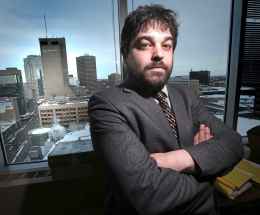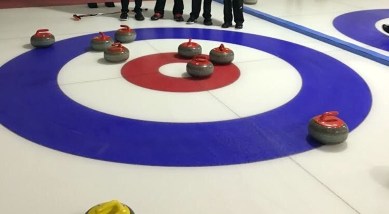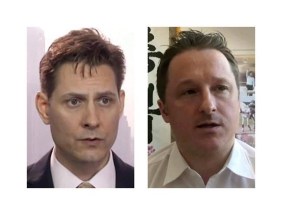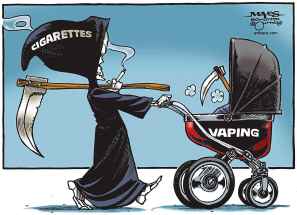Packing the penalty box NHL crackdown on abuse, bullying behind the bench long overdue; how will league deal with on-ice intimidation as old as the game itself?
Read this article for free:
or
Already have an account? Log in here »
To continue reading, please subscribe:
Monthly Digital Subscription
$19 $0 for the first 4 weeks*
- Enjoy unlimited reading on winnipegfreepress.com
- Read the E-Edition, our digital replica newspaper
- Access News Break, our award-winning app
- Play interactive puzzles
*No charge for 4 weeks then billed as $19 every four weeks (new subscribers and qualified returning subscribers only). Cancel anytime.
Read unlimited articles for free today:
or
Already have an account? Log in here »
Hey there, time traveller!
This article was published 09/12/2019 (1599 days ago), so information in it may no longer be current.
There is nothing particularly kind or gentle about the National Hockey League. Or, for that matter, high-level sports in general. It’s a foreign world to most of us, one where brute force and intimidation have always been viewed as being among the keys to success.
The strong don’t just survive, but thrive. And the weak usually get chewed up and spit out rather quickly.
Not surprisingly, this cutthroat dynamic has created countless sordid stories along the way, the vast majority of which have remained buried by the very power imbalance and toxic environment that allowed them to flourish in the first place.
Speak up and risk being mocked, ridiculed, blackballed — or worse.
But in the words of Bob Dylan, the times they are a-changin’. And what began a few weeks ago as a trickle now appears to be turning into a full-blown flood.
Don Cherry’s xenophobic views. Mike Babcock’s bullying of a rookie Mitch Marner. Bill Peters’ racist rant against Akim Aliu. Marc Crawford’s physical attacks on former players. Jim Montgomery’s mysterious bout of unprofessional conduct.
All of these terrible tales, now out in the open and serving as a rapidly growing list of examples of behaviour that will no longer be tolerated by a league and a sport that has turned a blind eye for far too long.
Cherry has been taken off the air, his bully pulpit finally removed. Babcock, Peters and Montgomery have all been fired from their head coaching gigs, their reputations now in tatters and future in hockey very much in doubt. Crawford remains suspended and under investigation by the Chicago Blackhawks.
Who’s next?
We may soon find out, as NHL commissioner Gary Bettman announced a detailed, four-point code of conduct after the board of governors meeting this week. It includes a “zero tolerance” approach to organizations that stay silent about indiscretions, mandatory diversity and anti-bullying training and counselling for all coaches, management and staff, the creation of new disciplinary guidelines and a new whistleblower hotline for victims, past or present, to sound the alarm.
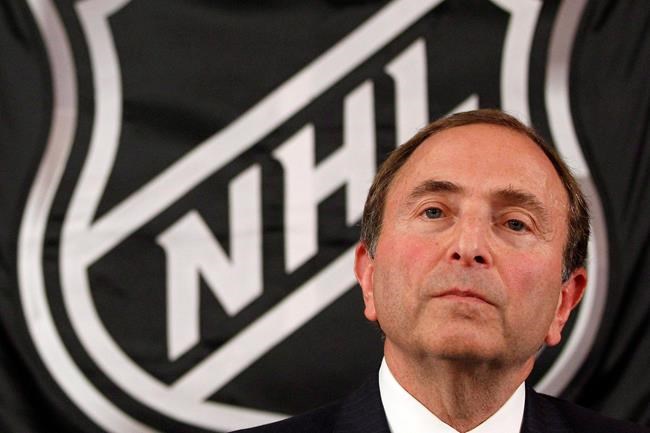
“The world is changing for the better. This is an opportunity, and a moment, for positive change and this evolution should be expedited — for the benefit of everyone associated with the game we love. And even while change is taking effect, we still must acknowledge things that were wrong in the past. That acknowledgment allows those who were wronged to be heard, and it gives all of us an opportunity to prevent these things from happening again,” said Bettman.
People in the NHL will want to pat themselves on the back and paint themselves as being proactive leaders, of course. But make no mistake — the league, like other prominent organizations, including Hockey Canada — would likely have remained quiet until this began to blow up on social media and affect the bottom line.
Money talks, and the league’s value was starting to take a bit of a hit.
Still, this is a positive — albeit long overdue — step by the NHL. But there are plenty of questions about how it’s all going to be applied and enforced.
“The world is changing for the better. This is an opportunity, and a moment, for positive change and this evolution should be expedited– for the benefit of everyone associated with the game we love.” – NHL commissioner Gary Bettman
In my two-plus decades of covering crime and justice, one of the most common legal arguments I’d hear had to do with the so-called “slippery slope.” In a nutshell, lawyers would often warn judges that making a certain ruling would open the door to future confusion.
There’s an element of all that here too, which Bettman acknowledged and tried to clarify.
“Clearly, physical abuse and racial and homophobic language cross the line. And while we acknowledge that there may be other actions that could cross the line or fall in a grey area, we hope the program we create, and its attendant consciousness-raising will help better define what is and what is not acceptable conduct and will make for a better playing and coaching environment,” he said.
For example, all of the above presumably covers not just player-coach conduct, but also player-player conduct. So, would the Evander Kane-Dustin Byfuglien “tracksuit” incident of a few seasons ago now be looked at in a much different light?
After all, I’d have to think tossing the (likely expensive) clothes of a teammate in the shower, as Byfuglien did to Kane during that 2014-15 Jets season which expedited Kane’s trade to Buffalo just days later, would fall under the category of inappropriate behaviour.
“Our message is unequivocal: We will not tolerate abusive behaviour of any kind,” said Bettman.
How about the on-ice exchange last year between Brendan Lemieux and Max Domi, in which Lemieux could be seen during a game making a profane comment to Domi about his sister?
Following a Manitoba Moose game last season, I asked veteran forward Ryan White about an on-ice dispute he’d had with San Diego Gulls skater Jake Dotchin, who previously had his NHL contract terminated by Tampa Bay for showing up to training camp out of shape. White admitted he used that as ammunition towards Dotchin, including doing a large belly pantomime towards Dotchin during the game at Bell MTS Place.
Isn’t that a bit out of bounds, I asked?
“I don’t care, I’ll go across the line every time. It doesn’t bother me,” White replied.
And therein lies the problem, the long-entrenched type of mindset that has existed in pro sports for so long. From players. From coaches. From managers. Win at all costs isn’t just a cliché, but an actual philosophy so many subscribe to.
It’s likely going to be a slow, painful process, one with lots of blurred lines, strong opinions and fierce debate.
Which is why trying to bring basic workplace guidelines into the world of professional sports is going to be a mighty challenge; the NHL is anything but your typical workplace. The few examples I cite above, off the top of my head, generated little more than a shrug and a chuckle from most observers at the time. But now?
As a result, we may see things get a lot worse in the short term, as plenty more long-hidden skeletons begin to emerge, looking all the more ghastly under a modern filter. It’s likely going to be a slow, painful process, one with lots of blurred lines, strong opinions and fierce debate.
But if the result is a kinder, gentler NHL, one in which everyone is treated with fairness and respect, society will ultimately be better for it.
mike.mcintyre@freepress.mb.ca
Twitter: @mikemcintyrewpg

Mike McIntyre
Sports reporter
Mike McIntyre grew up wanting to be a professional wrestler. But when that dream fizzled, he put all his brawn into becoming a professional writer.




